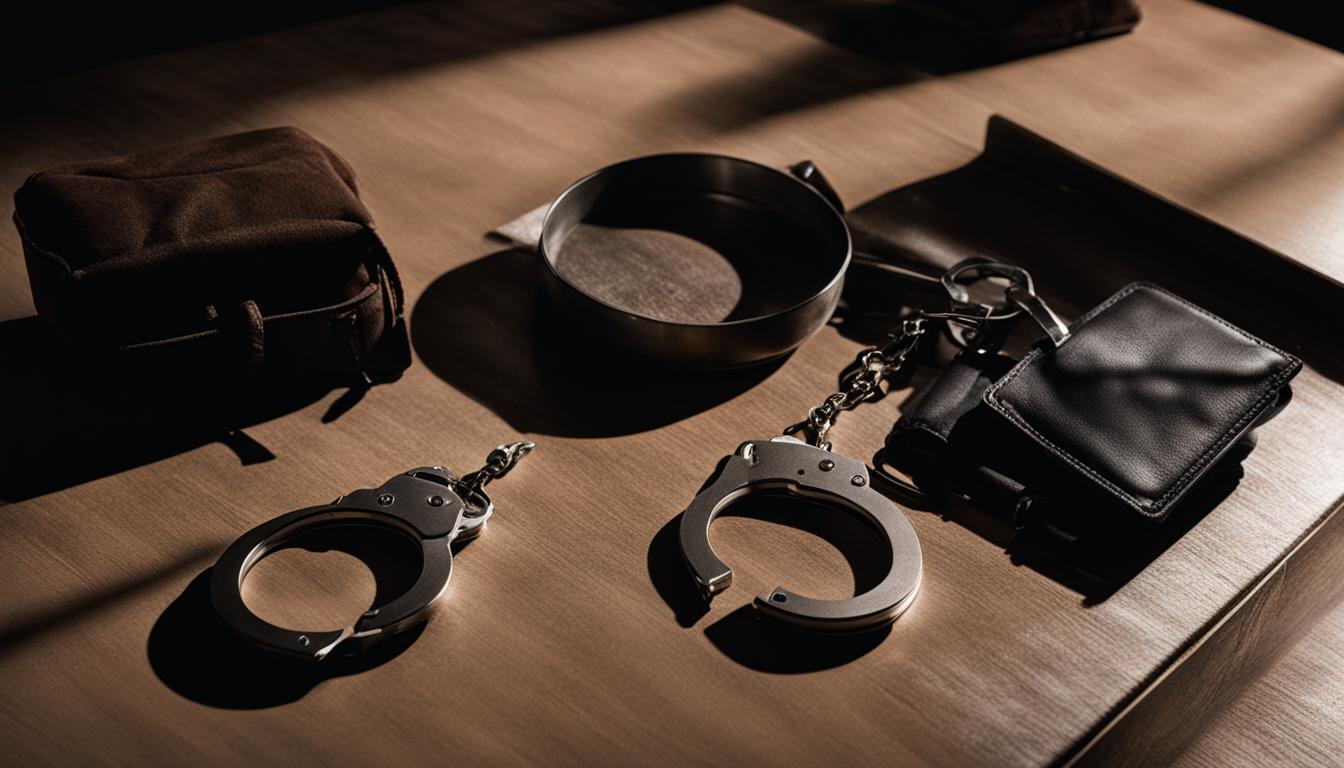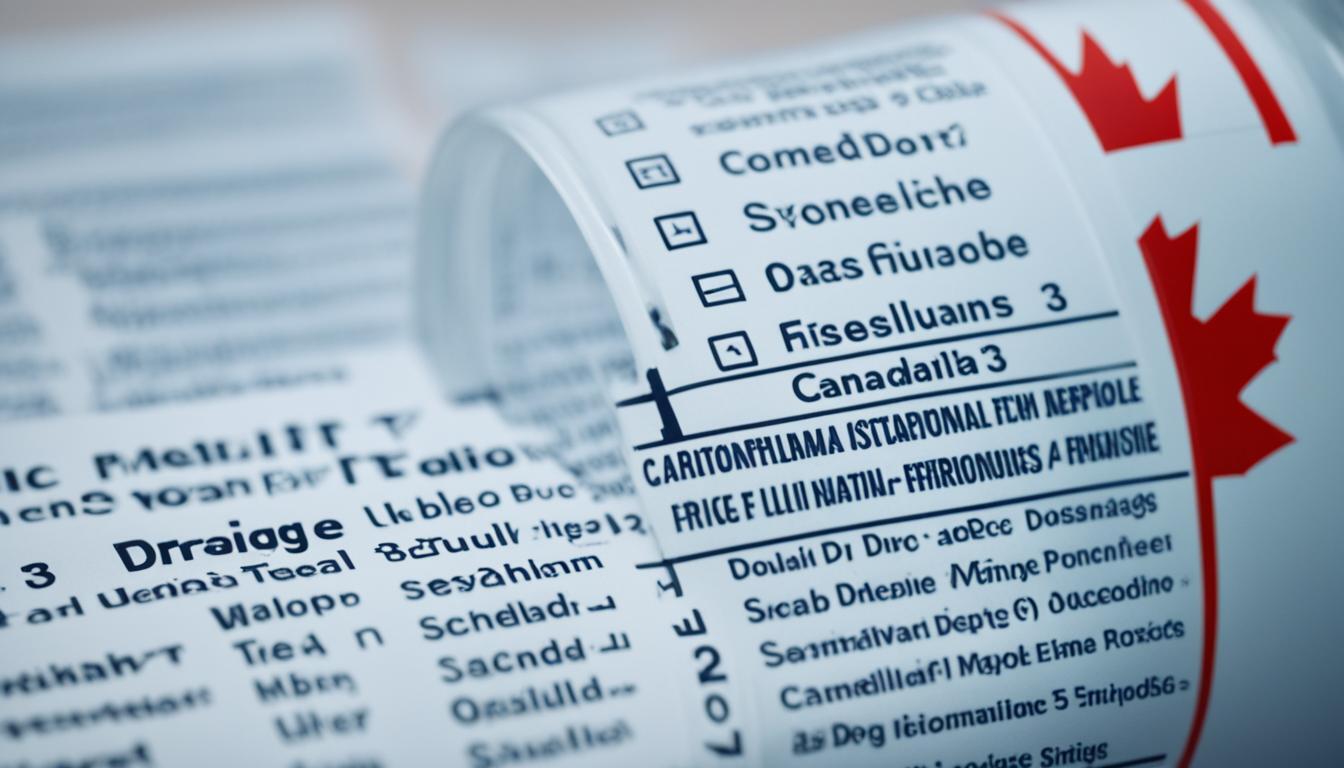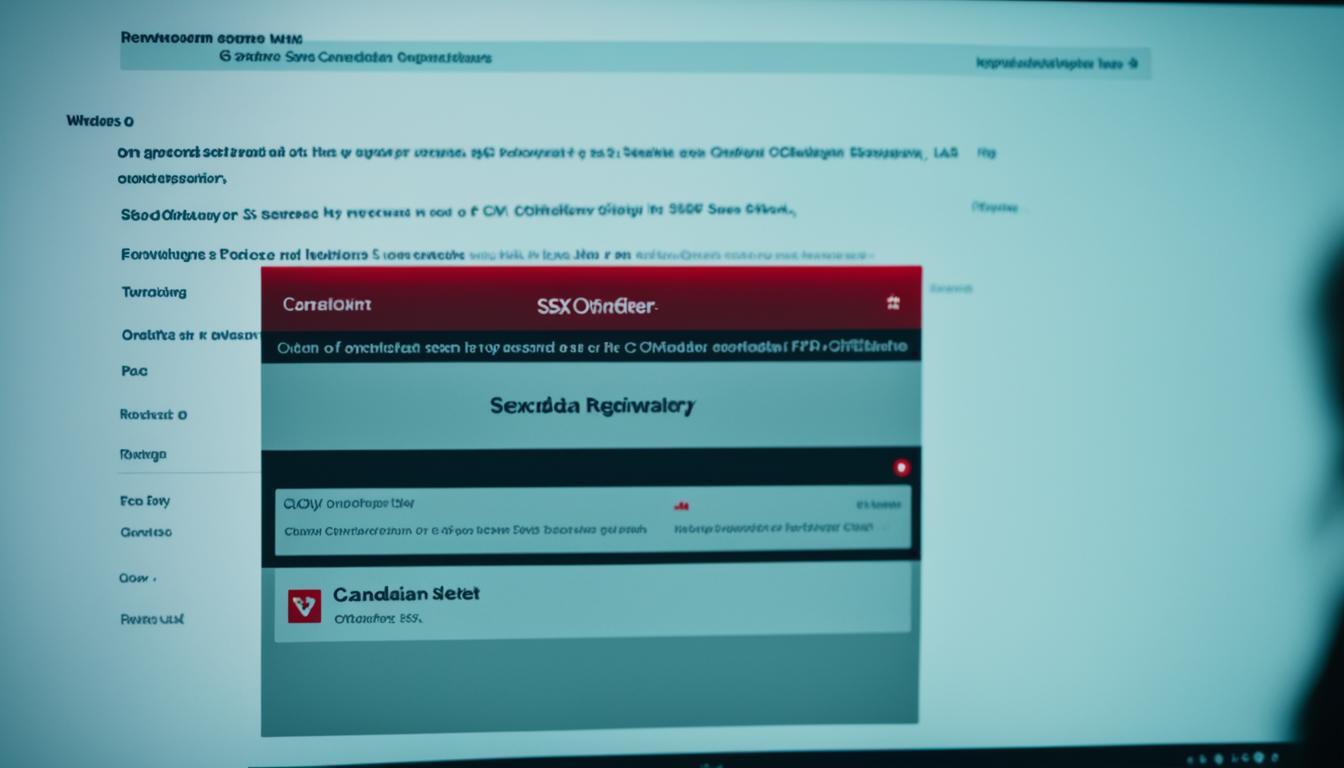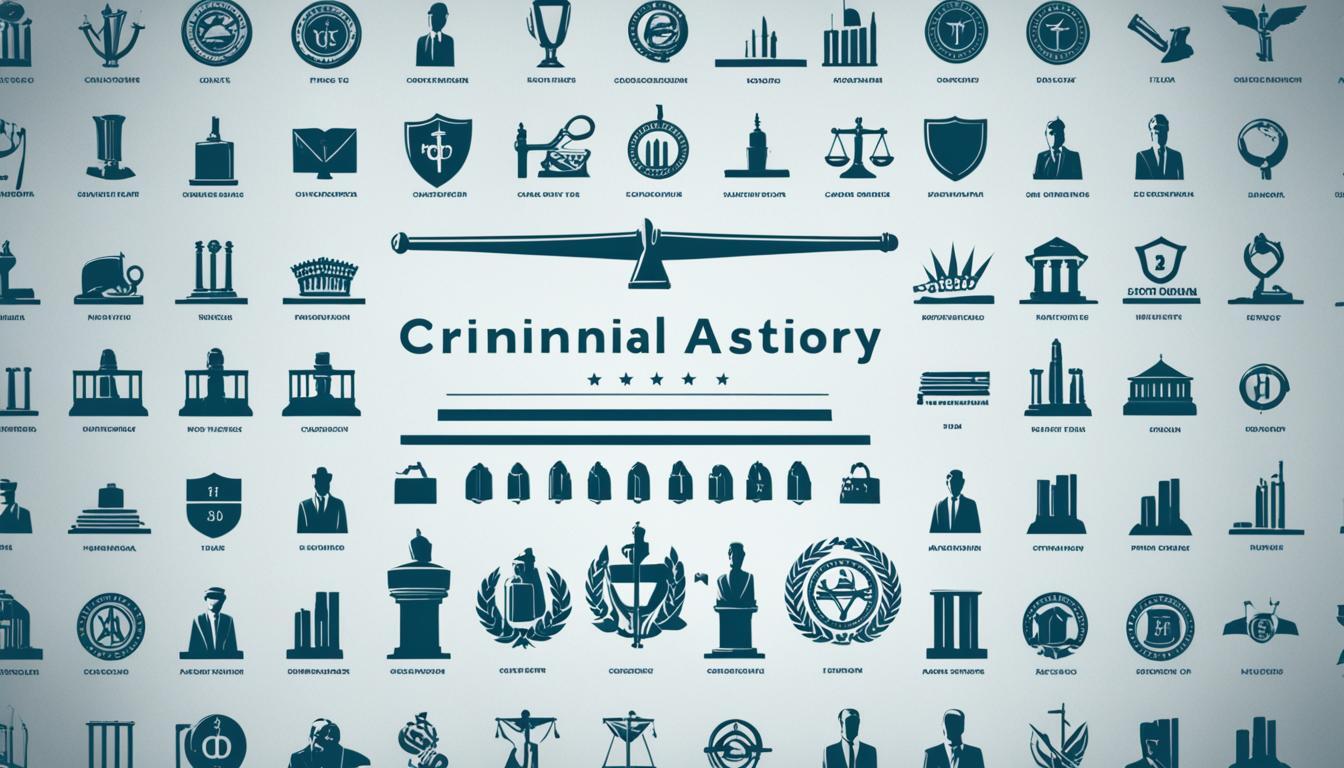First-Time Offender Drug Trafficking Canada Guide
Did you know that drug trafficking is a serious offense in Canada? As a first-time offender, it is crucial to understand your legal options and the potential consequences you may face in court.
Under the Controlled Drugs and Substances Act (CDSA), drug trafficking includes the sale, transportation, transfer, or offer to sell any controlled substance without proper authorization. The penalties for drug trafficking in Canada can be severe, with potential fines and imprisonment.
In this guide, I will provide you with an overview of drug trafficking in Canada, the penalties you may face, and the legal options available to first-time offenders. Understanding your rights and seeking appropriate legal representation is essential when navigating the complexities of the legal system.
Key Takeaways:
- Drug trafficking is a serious offense under the Controlled Drugs and Substances Act (CDSA) in Canada.
- First-time offenders could face fines of up to $5,000 and imprisonment for up to two years.
- Consulting with a criminal defense lawyer is crucial to understanding your legal options and developing a defense strategy.
- The court process for drug charges involves several stages, and sentencing guidelines consider factors such as the type and quantity of drugs involved.
- Mandatory minimum penalties (MMPs) aim to ensure consistency in sentencing and deter individuals from engaging in drug trafficking.
Understanding Drug Trafficking in Canada
Drug trafficking is a serious offense under the Controlled Drugs and Substances Act (CDSA) in Canada. It involves the sale, transportation, transfer, or offer to sell any controlled substance without proper authorization. This offense applies to both the distribution of illegal drugs and the possession of drugs with the intent to distribute.
The Controlled Drugs and Substances Act (CDSA) is the legislation that governs drug-related offenses in Canada. It classifies illegal substances into different schedules, with varying levels of severity. Drug trafficking offenses are considered a significant threat to public safety, and as such, they carry severe penalties.
It is crucial for individuals to understand the legal definition of drug trafficking and the potential consequences they may face if charged. Anyone caught engaging in drug trafficking can be subject to criminal charges, prosecution, and imprisonment.
Drug trafficking is not limited to large-scale operations. Even individuals involved in small-scale distribution or possession with the intent to distribute can be charged and prosecuted under the law. Being aware of the legal parameters and the potential consequences is essential to avoid getting involved in illegal activities and risking criminal liability.
Drug trafficking is treated as a serious crime due to its potential harmful effects on society. The distribution and sale of illegal substances can contribute to addiction, violence, and other criminal activities. The Canadian government takes a proactive approach in combating drug trafficking by enforcing strict laws and penalties to deter offenders.
Bringing awareness to the issue of drug trafficking and understanding its legal implications is crucial in addressing this ongoing problem. By educating the public on the consequences and risks associated with drug trafficking, we can work towards creating a safer and healthier society for all Canadians.

Penalties for Drug Trafficking in Canada
Drug trafficking in Canada carries significant penalties that vary based on factors such as the type and quantity of drugs involved, as well as the offender’s criminal history. For first-time offenders, the penalties can be substantial.
First and foremost, fines for drug trafficking can reach up to $5,000 for first-time offenders. Additionally, imprisonment for a period of up to two years is also a possible consequence. These penalties serve as a warning to deter individuals from engaging in drug trafficking activities.
However, it is essential to note that subsequent offenses carry even harsher penalties. A subsequent offense can lead to fines escalating up to $100,000 and imprisonment for the entirety of the offender’s life. It is evident that the consequences become increasingly severe for repeat offenders.
The court takes into consideration various factors when determining the severity of penalties for drug trafficking. These factors include the type of substance sold, the quantity involved, and the offender’s criminal record. The court aims to ensure that penalties are proportionate to the offense committed.

Understanding the potential penalties for drug trafficking in Canada is crucial for individuals involved in or facing charges related to this offense. It is essential to consult with a knowledgeable legal professional who can provide guidance in navigating the legal process and protecting one’s rights.
| Offense Type | Fines | Imprisonment |
|---|---|---|
| First-Time Offenders | Up to $5,000 | Up to 2 years |
| Subsequent Offenses | Up to $100,000 | Life imprisonment |
- First-time offenders can face fines of up to $5,000 and imprisonment for up to two years.
- Subsequent offenses carry steeper penalties, with fines of up to $100,000 and imprisonment for life.
- The court considers factors such as the type of substance sold, the quantity involved, and the offender’s criminal record in determining the severity of the penalty.
Legal Options for First-Time Offenders
As a first-time offender charged with drug trafficking, it is crucial to explore your legal options and seek professional guidance. Consulting with a criminal defense attorney who specializes in drug offenses can provide you with invaluable legal advice and support throughout the court process.
A criminal defense attorney will have a deep understanding of drug charges and can navigate the complexities of the legal system on your behalf. They will work closely with you to develop a defense strategy tailored to the specific details of your case.
Having proper legal representation is essential in ensuring the best possible outcome in court. A skilled attorney will protect your rights, challenge any evidence that was illegally obtained, and advocate for your interests during negotiations or trial proceedings.
By working with a criminal defense attorney, you can gain a clear understanding of the charges against you, explore potential defenses, and receive guidance on the best course of action to minimize the potential consequences you may face.
Remember, the criminal justice system is complex, and a small misstep or lack of understanding can have significant consequences. It is crucial to have a knowledgeable and experienced legal advocate by your side to navigate the process and protect your rights.
Consult with a criminal defense attorney who specializes in drug offenses to explore your legal options and receive the guidance and support you need during this challenging time.
The Court Process for Drug Charges
When facing drug charges in Canada, it is important to understand the court process and what to expect. The court process for drug charges typically involves several stages, each playing a crucial role in the final outcome of the case.
The first stage is the bail hearing, where a judge determines whether to release the accused on bail or keep them in custody until the trial. During this hearing, the judge assesses factors such as flight risk and public safety before making a decision.
After the bail hearing, the case proceeds to pre-trial conferences where the defense and prosecution discuss the evidence, potential resolutions, and any procedural matters. These conferences aim to promote case management and potentially reach a resolution without going to trial.
If the case does not reach a resolution during the pre-trial conferences, it moves forward to the trial stage. The trial proceedings involve presenting evidence, examining witnesses, and cross-examining the prosecution’s case. The Crown, representing the prosecution, is responsible for proving the charges beyond a reasonable doubt.
During the trial, the judge or jury evaluates the evidence presented and determines the guilt or innocence of the accused. If found guilty, the court then proceeds to the sentencing phase, where the appropriate penalties for the drug charges are determined.
| Stage | Description |
|---|---|
| Bail Hearing | Determining whether the accused is released on bail or kept in custody until trial. |
| Pre-trial Conferences | Discussions between the defense and prosecution to address evidence and potential resolutions. |
| Trial Proceedings | Presentation of evidence, examination of witnesses, and assessing the prosecution’s case. |
| Sentencing | Determining the appropriate penalties for the drug charges if the accused is found guilty. |
It is important for first-time offenders to understand the steps involved in the court process and the potential outcomes they may face. Being aware of the court process allows individuals to make informed decisions and seek appropriate legal representation to navigate the complexities of their case.
Strategies for Drug Trafficking Defense
When facing drug trafficking charges, developing an effective defense strategy is crucial. As a skilled criminal defense attorney, I will carefully review the evidence in your case and explore all possible defenses to protect your rights and advocate for your best interests.
One key aspect of a strong defense strategy is challenging any illegal searches or seizures conducted by law enforcement. By questioning the legality of the arrest or search, we can potentially have evidence excluded from the trial, weakening the prosecution’s case against you.
Another strategy is to challenge the credibility of witnesses presented by the prosecution. This may involve cross-examination to highlight any inconsistencies or biases that could undermine their testimony. By casting doubt on the reliability of the witnesses, we can create reasonable doubt in the minds of the judge or jury.
Additionally, presenting evidence of a lack of intent can be a viable defense strategy. In drug trafficking cases, the prosecution must prove that you knowingly and intentionally engaged in the illegal activity. By establishing that there was no intent to distribute drugs, we can cast doubt on the charges and potentially have them reduced or dismissed.
It is important to note that each drug trafficking case is unique, and the defense strategy must be tailored to the specific circumstances. As your criminal defense attorney, I will leverage my experience and expertise to craft a defense strategy that maximizes your chances of a favorable outcome in court.
Understanding Mandatory Minimum Penalties
When it comes to drug offenses, the Canadian legal system employs mandatory minimum penalties (MMPs) to ensure consistent sentencing and discourage individuals from participating in drug trafficking. These guidelines require the court to impose a minimum sentence for certain drug-related crimes, regardless of individual circumstances.
Mandatory minimum penalties play a crucial role in deterring drug offenses and maintaining law and order. By establishing a baseline punishment for drug crimes, these penalties aim to send a clear message that drug trafficking will not be tolerated in Canada.
The severity of mandatory minimum penalties varies depending on various factors, including the type and quantity of drugs involved and any aggravating factors. Offenses involving higher quantities or more dangerous substances may attract harsher penalties.
First-time offenders should be aware of the potential impact of mandatory minimum penalties on their case. Understanding the sentencing guidelines for drug crimes can help individuals make informed decisions and prepare for the legal process accordingly.
Mandatory Minimum Penalties for Drug Offenses
| Drug Quantity | Offense | Mandatory Minimum Penalty |
|---|---|---|
| Less than 1 gram | Trafficking or Possession with Intent to Traffic | 1 year imprisonment |
| 1 gram to 3 kilograms | Trafficking | 2 years imprisonment |
| 3 kilograms to 10 kilograms | Trafficking | 3 years imprisonment |
| More than 10 kilograms | Trafficking | 5 years imprisonment |
It’s important to note that the table above provides a general overview of minimum penalties for drug offenses and may not encompass all potential scenarios or variations in sentencing. The court considers individual circumstances and any additional aggravating factors when determining the final sentence.
When facing drug trafficking charges, it is crucial to consult with an experienced criminal defense lawyer who can guide you through the legal process and help build a strong defense. They will have in-depth knowledge of sentencing guidelines and can advocate for the best possible outcome in your case.
Seeking Help and Support
First-time offenders facing drug trafficking charges in Canada should seek help and support from a criminal defense lawyer who specializes in drug offenses. A criminal defense lawyer can provide valuable guidance and legal representation throughout the court process, ensuring the individual’s interests are effectively represented.
Having proper legal representation is essential to navigate the complexities of the legal system and protect one’s rights. A skilled lawyer will carefully assess the case, gather evidence, and develop a strong defense strategy to mitigate the potential consequences.
In addition to legal assistance, seeking support from loved ones can be an important source of emotional and practical support during this challenging time. Furthermore, accessing resources for addiction treatment, if applicable, can help address underlying issues and contribute to positive personal changes.
- The Role of Police in Community Safety & Unity - October 6, 2025
- Quebec Police Officer Salary Insights 2023 - July 13, 2025
- Canada Arrest Protocol: What Police Say Upon Arrest - June 12, 2025




















Post Comment